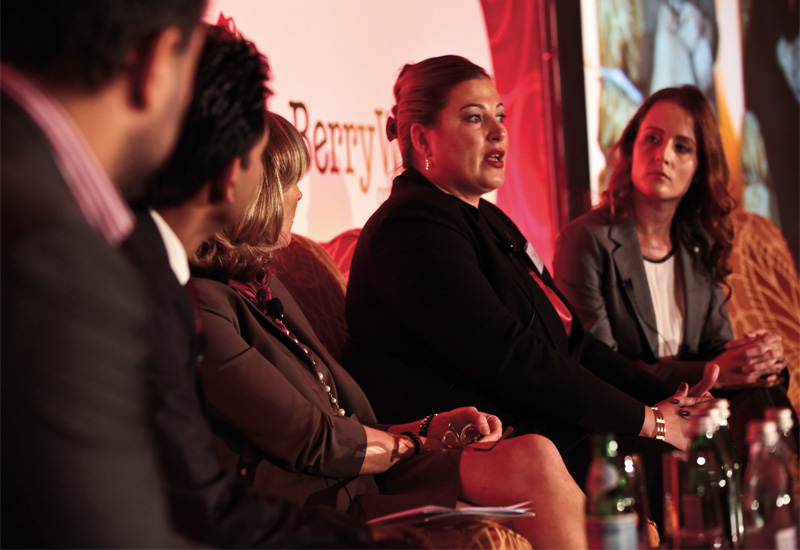 Panelists discussed the spa journey, concluding that a greater focus needed to be placed on retail to boost revenue, but staff needed more training on the products.
Panelists discussed the spa journey, concluding that a greater focus needed to be placed on retail to boost revenue, but staff needed more training on the products.
Business and budgets
In a later session focused on spa management — entitled Speaking The Language of Spas and Business and moderated by Atlantis’ Neil Hewerdine — Hilton Worldwide’s Sharon Barcock said there was also an issue with training at senior levels.
With regard to hotel spas, one of the main problems is the battle between the spa manager and the finance manager or general manager, with a lack of understanding on both sides causing barriers to spa directors getting the support they need.
“There’s a huge divide in the level of knowledge; if you talk about a hotel operator you have the finance team, and spa people do speak a different language to the hotel,” said Barcock.

| Advertisement |
“One of the things I have noticed is that you have the finance team working along the same lines as the hotel when preparing spa budgets, then the spa manager comes in and looks at the detail and realises they do not have enough team members to achieve the budget that has been set. So there’s a lack of synergy and that comes down to hotel teams and spa people.”
She admitted salaries offered for spa managers and the skill levels of these people also caused issues.
“Sometimes because of low pay spa managers don’t have the experience we’d like them to have. There is a requirement that we provide suitable training for our teams so we can develop people,” said Barcock.
“Working in the hotel sector we should be focused on hotel guests, but we can’t rely on full hotel occupancy making a full spa and we need to look outside that. Everything is geared towards the bottom line, but very often spa managers come in and — especially if they’ve been a therapist— want to make it a nice environment but forget it’s a business, and owners want to see that ROI.
“Another question is, who is doing the reporting for the spa?” she continued. “We’re finding more and more that there’s no reporting on the statistics. The budget is done, P&L done, but it would be nice to see spa managers taking more accountability for end of month results, how they’ve done and how they can improve.
“It is very important to understand what percentage of hotel guests are coming into the spa and different ways of driving the business forward, i.e. what’s the average cheque, average revenue per minute,” said Barcock.
Michael Monsod, director of spa & recreation at Sofitel The Palm, Dubai, which is opening later this year, said the onus was on the spa manager to prove to their superiors that they know what they are talking about when it comes to the performance of their operation.
“It’s important for you to know what language the finance team is speaking and make them realise what you mean by statistics you have collected, and if they understand that you know more about the spa business, they’ll listen. The other thing is managing expectations, explaining capacity – number of therapists versus treatment rooms.
“You give a forecast for next month and they say ‘why is it low?’ and you say you’ve had resignation from a therapist. And they don’t always get it but we need to explain to the management team and the general manager [that spas cannot forecast by number of rooms alone],” Monsod continued.
“For each management team they have different priorities – not everyone has the same metrics. You have to do your homework and they have to know you know what you’re talking about — if they see a gap in your argument they jump in with numbers,” Monsod warned.
Article continues on next page ...








 Search our database of more than 2,700 industry companies
Search our database of more than 2,700 industry companies









